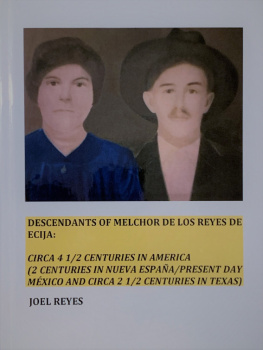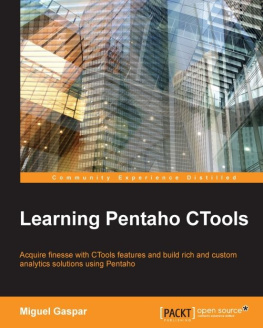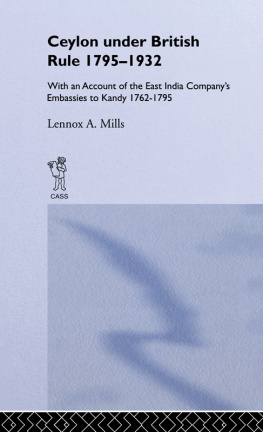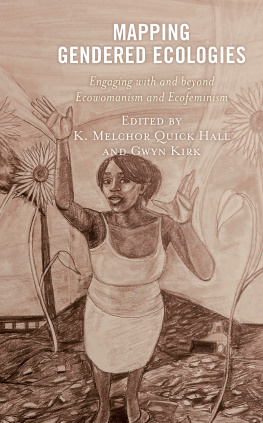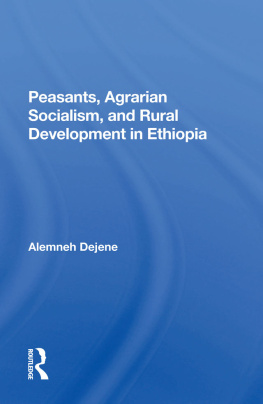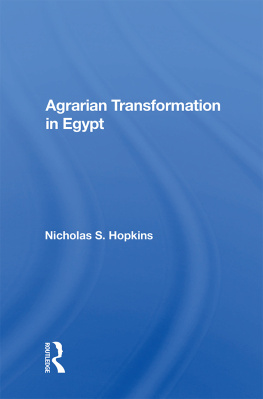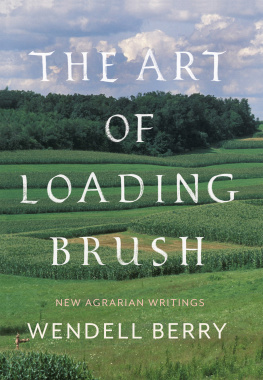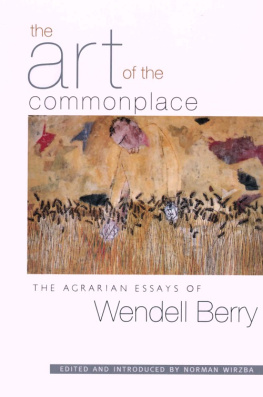Report on the Agrarian Law (1795) and Other Writings
ECONOMIC IDEAS THAT BUILT EUROPE
Economic Ideas That Built Europe reconstructs the development of European political economy as seen through the eyes of its principal architects and interpreters, working to overcome the ideological nature of recent historiography. The volumes in the series contextualized through analytical introductions and enriched with explanatory footnotes, bibliographies and indices offer a wide selection of texts inspired by very different economic visions, and stress their complex consequences and interactions in the rich but often simplified history of European economic thought.
Series Editor
Sophus A. Reinert Harvard Business School, USA
Editorial Board
David Armitage Harvard University, USA
Steven L. Kaplan Cornell University, USA
Emma Rothschild Harvard University, USA
Jacob Soll Rutgers University, USA
Report on the Agrarian Law (1795) and Other Writings
Gaspar Melchor de Jovellanos
Edited with an Introduction by Gabriel Paquette and
lvaro Caso Bello
Translated by Yesenia Pumarada Cruz
Anthem Press
An imprint of Wimbledon Publishing Company
www.anthempress.com
This edition first published in UK and USA 2016
by ANTHEM PRESS
7576 Blackfriars Road, London SE1 8HA, UK
or PO Box 9779, London SW19 7ZG, UK
and
244 Madison Ave #116, New York, NY 10016, USA
2016 Gabriel Paquette and lvaro Caso Bello editorial matter and selection;
individual chapters individual contributors
The moral right of the authors has been asserted.
All rights reserved. Without limiting the rights under copyright reserved above,
no part of this publication may be reproduced, stored or introduced into
a retrieval system, or transmitted, in any form or by any means
(electronic, mechanical, photocopying, recording or otherwise),
without the prior written permission of both the copyright
owner and the above publisher of this book.
British Library Cataloguing-in-Publication Data
A catalogue record for this book is available from the British Library.
Library of Congress Cataloging-in-Publication Data
A catalog record for this book has been requested.
ISBN-13: 978-1-78308-629-0 (Hbk)
ISBN-10: 1-78308-629-7 (Hbk)
This title is also available as an e-book.
CONTENTS
Gabriel Paquette is a professor of history at Johns Hopkins University. He is the author of Enlightenment, Governance and Reform in Spain and Its Empire, 17591808 (2008) and numerous articles on aspects of eighteenth-century intellectual history published in European History Quarterly, History of European Ideas, Bulletin of Spanish Studies, Modern Intellectual History and Journal of Latin American Studies, among other academic journals.
lvaro Caso Bello is a PhD candidate in history at Johns Hopkins University, where he also obtained his MA in history. He has published articles in academic journals in Spain and Latin America, such as Ariadna Histrica and HIb-Historia Iberoamericana, as well as book chapters in volumes such as El Sur en Revolucin (2015) and La Subversin del Orden por la Palabra (2015).
The translation of the Report on the Agrarian Law was made on the basis of the 1795 original, Informe de la Sociedad Econmica de esta Corte al Real y Supremo Consejo de Castilla en el Expediente de la Ley Agraria extendido por su Individuo de Nmero, El Sr. D. Gaspar Melchor de Jovellanos a nombre de la Junta Encargada de su Formacin y Arreglo a sus Opiniones (Madrid: En la Imprenta de Sancha, 1795).
The translations of the four additional texts were made on the basis of those published in nineteenth-century editions of Jovellanoss collected works: Sobre la necesidad de unir al estudio de nuestra legislacin el de nuestra historia y antigedades (1780), the Oracin sobre la necesidad de unir el estudio de la literatura al de las ciencias (1797) and the Elogio de Carlos III were taken from Obras del Excelentsimo Seor D. Gaspar Melchor de Jovellanos (Barcelona: Imprenta de Francisco Oliva, 18391840), vols. 2 and 3. The Oracin Inaugural a la apertura del Real Instituto Asturiano was taken from Coleccin de varias obras en prosa y verso del Exmo: Seor D. Gaspar Melchor de Jovellanos (Madrid: Imprenta de Len Amarita, 1830), vol. 2.
Some terms without an English language equivalent have been left in the original Spanish, and several of the most important of these are accompanied by a footnote with an Editors Note or E. N. Jovellanoss footnotes in Spanish have been translated into English, but his Latin footnotes have been left in the original language. The style and format of Jovellanoss footnotes are the same as those in the original texts.
The editors wish to thank Sophus Reinert and Francesca Viano for their generosity in using the grant they received from the Institute for New Economic Thinking (INET) to underwrite the translation of Jovellanoss Report on the Agrarian Law. Yesenia Pumarada Cruz undertook and completed the translation with impressive skill, which greatly facilitated the editors task of revising the translation and preparing the present volume for publication. The editors would have been unable to complete their work without the unfailing support of the History Department of Johns Hopkins University.
Jovellanos, the Bourbon Reforms and the Spanish Enlightenment
Gaspar Melchor de Jovellanos (17441811) was a leading figure of the late eighteenth-century Spanish Enlightenment. His life and career coincided with what is known to historians as the period of the Bourbon Reforms, called Bourbon for the dynasty that ruled Spain and its Atlantic empire from the first decades of the eighteenth century. The reforms the Crown undertook, which touched all aspects of Spanish political, economic and social life, reached their apogee in the final third of the century.
The strenuous reform effort expended in Spain and Spanish America was formidable, even if it was seldom matched by the permanent results attained. Contemporaries witnessed fresh incursions into Amerindian-controlled lands, the spasmodic settlement of rustic peripheries from Patagonia to modern British Columbia and the military repossession of Florida, Louisiana and the Mosquito Coast. There were Crown-led attempts to overhaul the navy, improve and expand the army and colonial militias, revamp coastal fortifications and ports, modify university education, enact a less-regulated trade regime, boost mineral yields, encourage export-led agricultural production and wrest control of church property and patronage.
Whether caused by these attempts or merely coterminous with them, Spains empire experienced remarkable urban, mercantile and demographic growth in the eighteenth century. This surge was sparked by export-led production and galvanized by the dramatic influx of African slaves, particularly explosive in Caracas, Havana, Buenos Aires and their hinterlands. The average value of exports from Spain to America was 400 percent higher in 1796 than it had been in 1778, though problems were gathering on the horizon. The techniques employed to raise revenue and consolidate centralized control sparked tax riots and broader undercurrents of resistance across Spanish America, from the Quito Revolt of 1765 to the Tpac Amaru revolt in Peru and the






